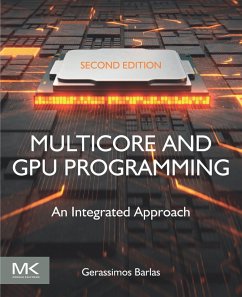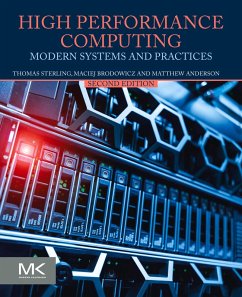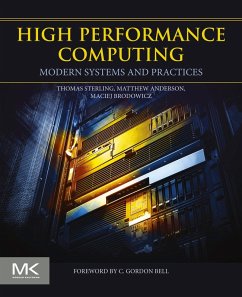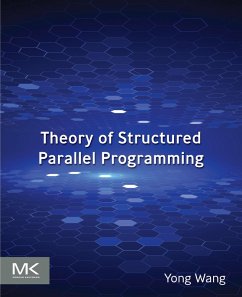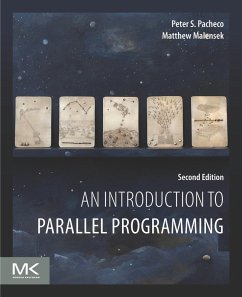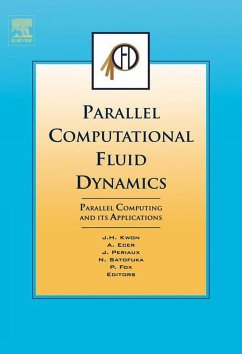
Heterogeneous System Architecture (eBook, ePUB)
A New Compute Platform Infrastructure
Versandkostenfrei!
Sofort per Download lieferbar
39,95 €
inkl. MwSt.
Weitere Ausgaben:

PAYBACK Punkte
20 °P sammeln!
Heterogeneous Systems Architecture - a new compute platform infrastructure presents a next-generation hardware platform, and associated software, that allows processors of different types to work efficiently and cooperatively in shared memory from a single source program. HSA also defines a virtual ISA for parallel routines or kernels, which is vendor and ISA independent thus enabling single source programs to execute across any HSA compliant heterogeneous processer from those used in smartphones to supercomputers. The book begins with an overview of the evolution of heterogeneous parallel pro...
Heterogeneous Systems Architecture - a new compute platform infrastructure presents a next-generation hardware platform, and associated software, that allows processors of different types to work efficiently and cooperatively in shared memory from a single source program. HSA also defines a virtual ISA for parallel routines or kernels, which is vendor and ISA independent thus enabling single source programs to execute across any HSA compliant heterogeneous processer from those used in smartphones to supercomputers. The book begins with an overview of the evolution of heterogeneous parallel processing, associated problems, and how they are overcome with HSA. Later chapters provide a deeper perspective on topics such as the runtime, memory model, queuing, context switching, the architected queuing language, simulators, and tool chains. Finally, three real world examples are presented, which provide an early demonstration of how HSA can deliver significantly higher performance thru C++ based applications. Contributing authors are HSA Foundation members who are experts from both academia and industry. Some of these distinguished authors are listed here in alphabetical order: Yeh-Ching Chung, Benedict R. Gaster, Juan Gómez-Luna, Derek Hower, Lee Howes, Shih-Hao HungThomas B. Jablin, David Kaeli,Phil Rogers, Ben Sander, I-Jui (Ray) Sung. - Provides clear and concise explanations of key HSA concepts and fundamentals by expert HSA Specification contributors - Explains how performance-bound programming algorithms and application types can be significantly optimized by utilizing HSA hardware and software features - Presents HSA simply, clearly, and concisely without reading the detailed HSA Specification documents - Demonstrates ideal mapping of processing resources from CPUs to many other heterogeneous processors that comply with HSA Specifications
Dieser Download kann aus rechtlichen Gründen nur mit Rechnungsadresse in A, B, BG, CY, CZ, D, DK, EW, E, FIN, F, GR, HR, H, IRL, I, LT, L, LR, M, NL, PL, P, R, S, SLO, SK ausgeliefert werden.





